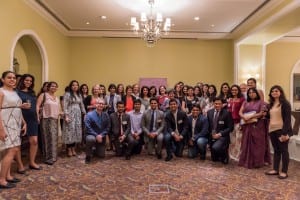New resources to support LGBT staff and students working abroad
By Sophie Vinter, on 14 July 2016
 Forty per cent of the world’s population live in countries where lesbian, gay, bisexual and transgender (LGBT) people can be imprisoned, just for being themselves.
Forty per cent of the world’s population live in countries where lesbian, gay, bisexual and transgender (LGBT) people can be imprisoned, just for being themselves.
UK charity Stonewall is fighting to change this and has launched a set of Global Workplace Briefings open to UCL staff and students to access the latest information.
UCL has a history of opening up education to people previously excluded from it, and was the first UK university to join Stonewall’s Global Diversity Champion programme for international employers, helping to promote equality around the world.
The new Global Workplace Briefings shine a spotlight on the situation for LGBT people in different countries, which will enable UCL staff and students planning to work overseas to keep up to date on changing laws and the potential implications.
Protecting from discrimination
In more than half the world, LGBT people are not protected from discrimination under workplace law.
The first set of briefings, which are available via UCL’s Equalities website, cover Brazil, China, Hong Kong, India, Italy, Poland, Russia, Singapore, South Africa and Turkey.
Further briefings will follow later this year.
Each briefing outlines the legal, socio-cultural and workplace situation for LGBT people in the specified country and showcases progressive workplace practices from Stonewall’s membership.
They provide an important summary of in-country contexts for global mobility teams, helping them to identify where colleagues may need additional support when travelling internationally.
Supporting UCL’s LGBTQ community
Dr Fiona Leigh, a member of UCL’s LGBTQ+ Equality Advisory Group (LEAG), said UCL is now working further with Stonewall to produce additional briefings specifically for those working within higher education.
She said: “UCL is committed to providing resources and information for the safety and support of all of our staff and students, when travelling and working internationally.
“These briefings provide a very useful background in this endeavour, whether for LGBT staff or students or those supporting others with international visits.”
 Close
Close





